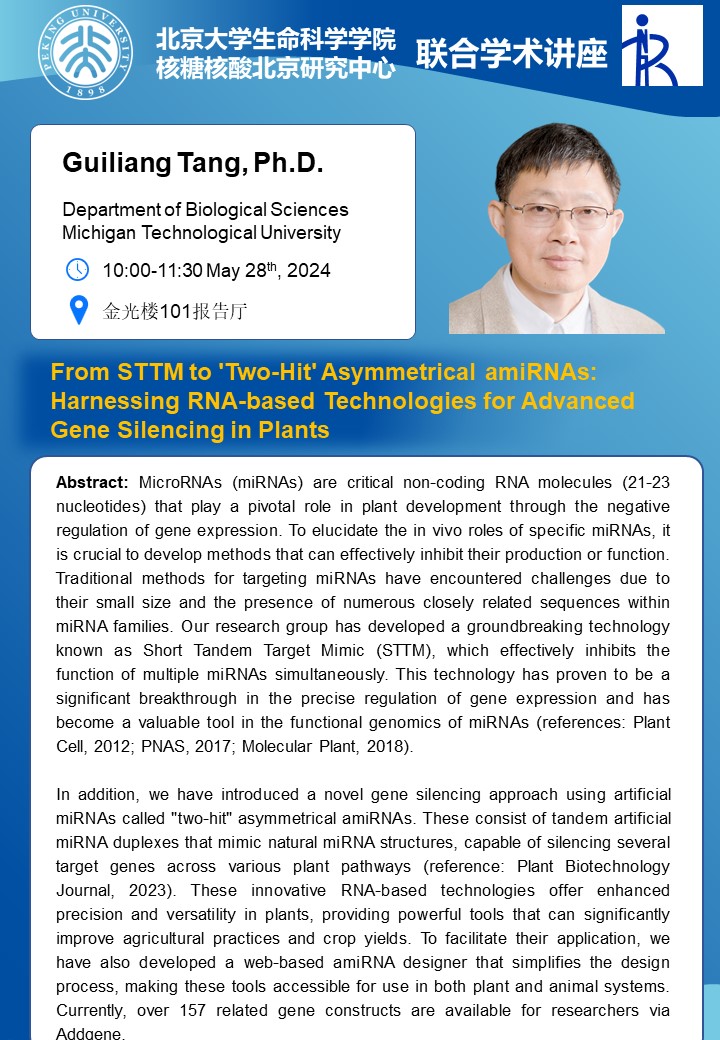
Speaker: Guiliang Tang, Ph.D. , Department of Biological Sciences Michigan Technological University
Time: 10:00-11:30 a.m., May 28, 2024, GMT+8
Venue: Rm 101, Jinguang Life Science Building, PKU
Abstract:
MicroRNAs (miRNAs) are critical non-coding RNA molecules (21-23nucleotides) that play a pivotal role in plant development through the negative regulation of gene expression. To elucidate the in vivo roles of specific miRNAs, it is crucial to develop methods that can effectively inhibit their production or function .Traditional methods for targeting miRNAs have encountered challenges due to heir small size and the presence of numerous closely related sequences within miRNA families. Our research group has developed a groundbreaking technology known as Short Tandem Target Mimic (STTM), which effectively inhibits the function of multiple miRNAs simultaneously. This technology has proven to be a significant breakthrough in the precise regulation of gene expression and has become a valuable tool in the functional genomics of miRNAs (references: PlantCell, 2012; PNAS, 2017; Molecular Plant, 2018).
In addition, we have introduced a novel gene silencing approach using artificial miRNAs called "two-hit" asymmetrical a miRNAs. These consist of tandem artificial miRNA duplexes that mimic natural miRNA structures, capable of silencing several target genes across various plant pathways (reference:Plant BiotechnologyJournal, 2023). These innovative RNA-based technologies offer enhanced precision and versatility in plants, providing powerful tools that can significantly improve agricultural practices and crop yields. To facilitate their application, we have also developed a web-based a miRNA designer that simplifies the design process, making these tools accessible for use in both plant and animal systems.Currently, over 157 related gene constructs are available for researchers via Addaene.
Source: School of Life Sciences, PKU
